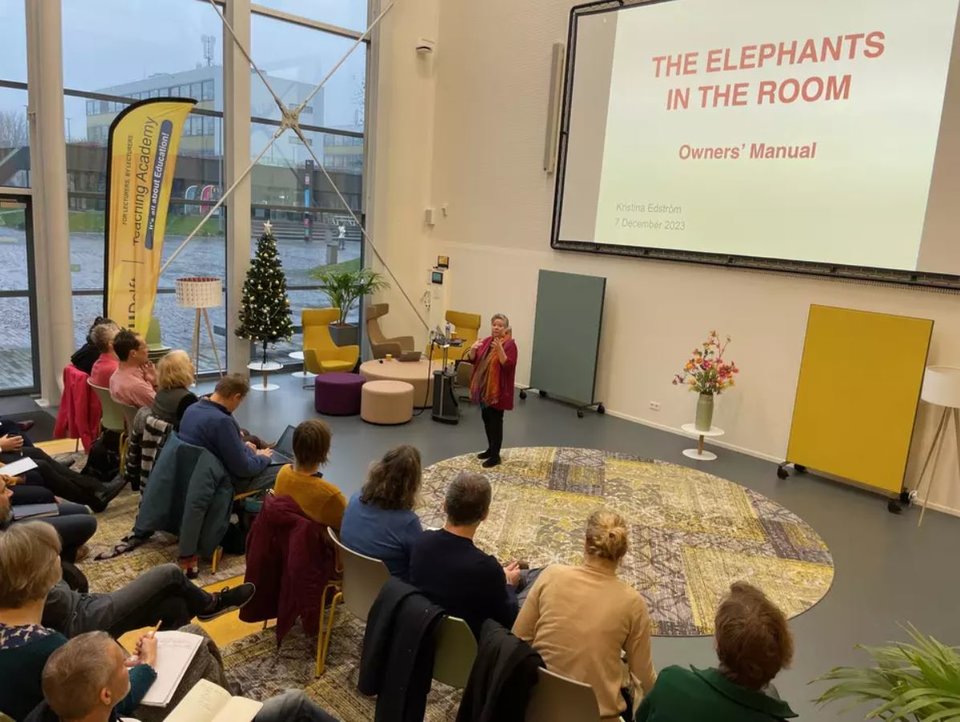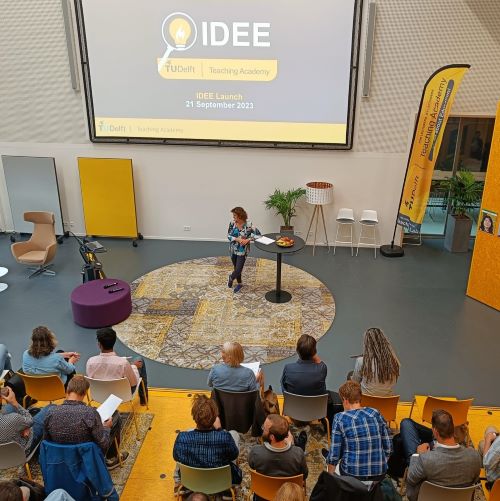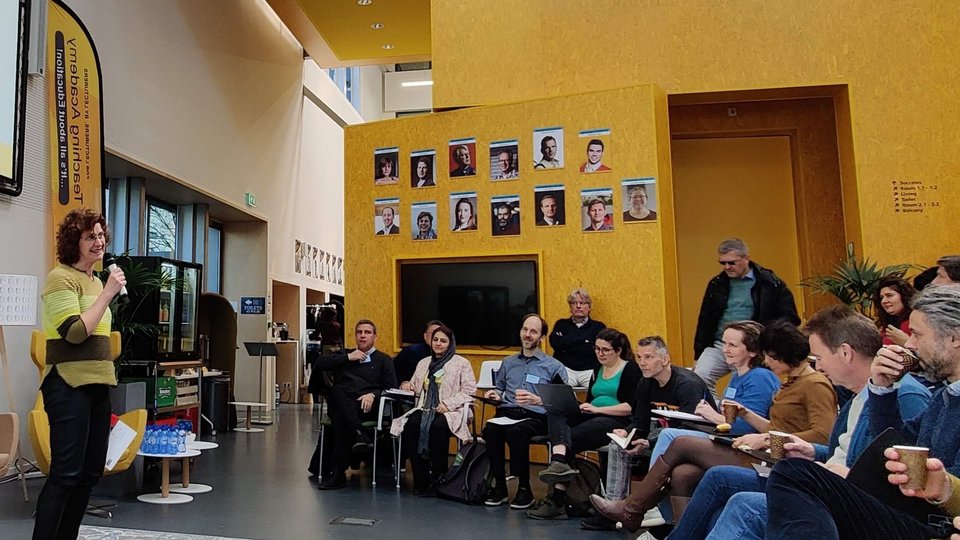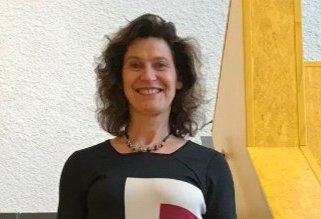Innovation in Delft Engineering Education (IDEE)
The TU Delft Teaching Academy Initiative on Innovation in Delft Engineering Education (IDEE) combines innovation and research for a lasting impact on TU Delft Engineering Education.
TU Delft is educating engineers in and for a society that is becoming increasingly volatile, uncertain, complex, and ambiguous. In this landscape, IDEE is founded to continuously adapt engineering education, informed by research, to the needs of society and the future.
What makes IDEE novel is its approach of combining innovation and Engineering Education Research to address university-wide educational challenges. This combination enhances the usefulness and scholarly nature of its results.
IDEE unites scientific staff, PhD candidates, Postdoc researchers, and learning developers to collaborate across faculty boundaries.
IDEE offers researchers with an interest in education and innovation a professional environment with the time and place to develop this interest and their talents, serving the culture of recognising and rewarding the education-oriented career path at TU Delft.
-
IDEE’s success is guaranteed by the following elements:
- The IDEE Board: responsible for advising and guiding the IDEE teams, safeguarding the quality of the programme and ensuring alignment with the strategic priorities of the university.
- IDEE’s Engineering Education Scientific Expert: a full professor in Innovation in Engineering Education.
- Resources to support the five theme teams
- The IDEE development programme: The IDEE development programme equips members to combine innovation and research activities by organising sessions to develop themselves in education innovation and to broaden their (educational) horizons in different areas of expertise.
- Two dedicated programme managers from the Teaching Academy Facilitation Team, who via close collaboration with the Academic Director and Scientific Expert, facilitate IDEE as a programme and community; and the pioneering projects within the programme.
-
The IDEE Board consists of the Vice President of Education, the Academic Director of the Teaching Academy, the Engineering Education Scientific Expert, the Strategic Policy Advisor for Education, and a professor in Educational Psychology (external).For the period September 2023 until September 2025, the members are Prof. Dr. Rob Mudde, Prof. Dr. Annoesjka Cabo, Prof. Dr. Kristina Edström, Drs. Jenny Brakels, and Prof. Dr. Fred Paas (Erasmus University Rotterdam)."
-
Prof.dr. Kristina Edström is TU Delft’s full professor in Innovation in Engineering Education. She is appointed at the DIAM department in the faculty of EEMCS. Professor Edström is also based at KTH Stockholm. For her view on IDEE, we refer to an interview published on the website of KTH. -
Five IDEE teams are working simultaneously on different educational themes – all inspired by didactic-pedagogical challenges relevant to all Engineering Education disciplines at TU Delft. Learn more about each theme and its scope using the menu below.
The first three IDEE teams began their IDEE journey in September 2023; the fourth and fifth theme will start in the academic year 2024-2025.The IDEE programme provides resources for five PhD candidates and ten Postdoc researchers evenly distributed across the teams. Additionally, each team has a Learning Developer (0.2 FTE) and resources are available for hiring Teaching Assistants (0.2 FTE). Members of the core teams commit to IDEE by dedicating 0.2 FTE of their (research) time to IDEE.
-
The programme is a series of events organised by the IDEE programme managers to offer IDEE members session and seminars to broaden their horizon on different educational themes. The objective of the development programme is to (further) enrich the knowledge and skills of scientific staff regarding combining innovation and research efforts to impact engineering education TU-wide. -
The IDEE programme management team consists of two dedicated part-time programme managers (1.4 FTE), overseeing the overall processes, thinking one step ahead, connecting different stakeholders, facilitating collaboration among the teams, organising events and supporting day-to-day activities of the IDEE Project Teams. Additionally, the programme managers are in close contact (linking pin between the IDEE Teams and) with the Academic Director, specifically in positioning IDEE within university context; and they work together with the Engineering Education Scientific Expert to create a supportive work environment for the PhDs and Postdocs and guide the teams in the educational research field.
The IDEE Themes
In IDEE, scientific staff, PhD candidates, Postdoc researchers, and Learning Developers join forces to combine innovation and research for a lasting impact on TU Delft Engineering Education with a focus on different educational themes – all inspired by didactic-pedagogical challenges relevant to all Engineering Education disciplines at TU Delft.
All selected IDEE themes meet the requirements of being a true TU Delft challenge: Relevant and current for all TU Delft programmes; Interdisciplinary and cross-curricular in nature; Combination of innovation and research activities; Relevant potential research questions to be tackled by PhD candidate, Postdoc researchers, and/or other scientific team members.
After an elaborate inquiry of potential themes and connected opportunities, risks, and considerations, Vice President of Education, together with the Teaching Academy Academic Director and a Senior Strategic Policy Advisor, selected the following five themes to be addressed in IDEE until 2028.
-
Taking responsibility and acting autonomously are key competencies for professional engineers and their future contribution to society. They also play an important role in stimulating intrinsic motivation. In this theme, the main question is how to create the conditions to have students take the responsibility for their own learning process. These conditions apply to students, lecturers, the curriculum as well as the learning environment in which they operate. Key questions possibly addressed within this theme are: what do students need to be able to take responsibility? How to design a curriculum which allows students to take responsibility? And what should lecturers do to stimulate and enable students to take responsibility?
For more information about the this project, e.g. the project proposal or the IDEE-STR blogs, click here. -
Students and lecturers often experience a loss of knowledge and skills among students during their studies. And students’ new employers experience a lack of knowledge and skills necessary in their companies. Wouldn’t it be nice if students would retain the knowledge and skills acquired during their studies and be able to apply them throughout their studies and in their future jobs? Some possible questions within this theme are: how to design a consistent curriculum to stimulate retention of knowledge and skills? And: How to design the assessment of knowledge and skills in such a way that knowledge and skills retention is guaranteed?
-
Courses on engineering skills are part of many engineering education programmes. In a rapidly developing society, required engineering skills change quickly. One of the challenges is to better anticipate engineering skills needed in the future and to stay updated on the state-of-the-art engineering skills needed in society. How to design agile degree programmes in which future engineering skills are effectively acquired and seamlessly integrated? How to make sure that the skills addressed in the programmes are in line with the skills needed? And how to stimulate critical reflection among students on the application of new engineering skills in professional practice and society?
-
Technological innovations influence how we learn and teach. As the newest technology impacting education, artificial intelligence brings both opportunities and challenges into education. This creates a need to understand how AI enhances teaching, and consequently, learning. At the same time, it is necessary to handle the risk that students use AI to circumvent learning, and teachers use AI to circumvent teaching. Therefore, in the age of AI, how to teach and assess so that we know that students really learn, and so that students feel seen and supported by the teachers? There is a need for strategies for assessing learning that prevent attempts to circumvent learning and have a rich teaching presence, but not necessarily using AI. The innovations and research of this theme could focus on, for example: Can AI offer new learning and teaching strategies; how does AI influence assessment of student work; what do educators need and want in delivering education in an era where technology evolves with disruptive speed?
-
TU Delft and its engineering education expect a lot from students to ultimately graduate as high-end engineers. In the transition from secondary education to higher engineering education, there are challenges with serious implications both for students and educators. For example, whether students come from Dutch high schools or from international backgrounds, they often need to develop their ways to approach the studies at university. Success is not only about students passing courses but also strengthening their sense of belonging. Also, many students are going through life changes at the same time, such as living places, living arrangements, social groups and income. The innovations and research could be about, for instance: What does this journey entail for students, and how can we ensure a successful transition; what is the role of an educator in supporting students’ transition; what strategies can we adapt into our programmes and courses to support students with this transition, taken into account students’ diverse backgrounds and needs?
Do you want to be part of IDEE?
The IDEE programme management is continuously on the lookout for educators who want to get involved. Whether it's participating in the team, opening your course for exploration, your involvement and creativity are appreciated. To connect with IDEE or express your interest, please send an email to teachingacademy@tudelft.nl.
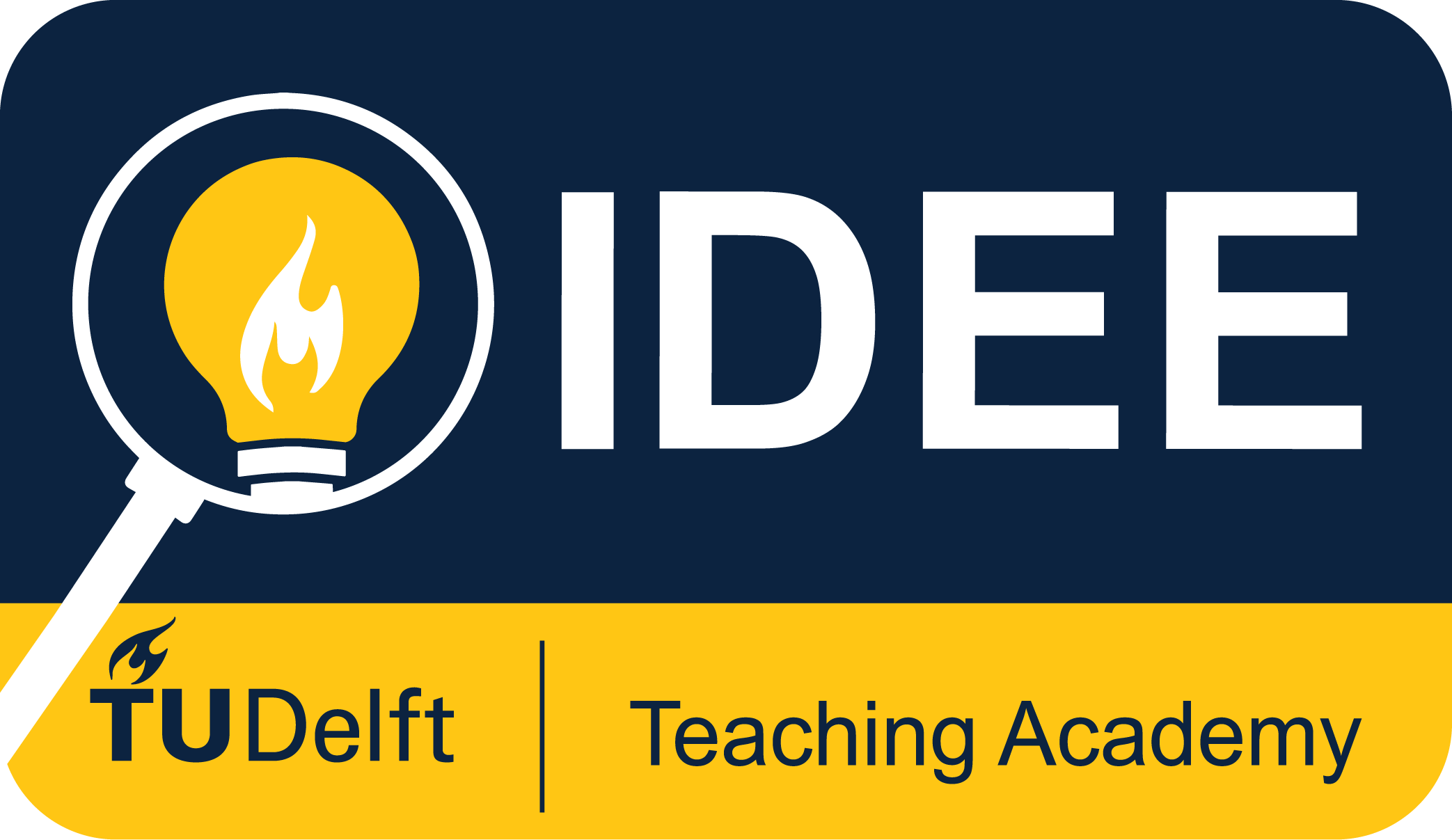
IDEE Updates
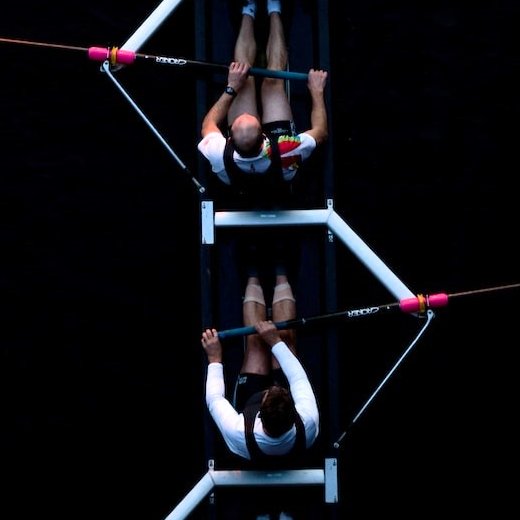
Call for scientific members for IDEE for two new themes opened


